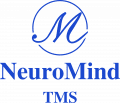If you are getting into the clutches of depression, it can badly affect your mind and body. Sometimes it can drain your energy, leave to feel alone and tired. Change in moods, strength, habits and sleep patterns are some of the symptoms which indicate that you are going to a depression stage. Early signs are red flags and need to be noticed. Early start of treatment can help you to gain your inner strength and live a happy life. To better understand about the cure for depression, it necessary to know the different type of depression. Every kind of depression has different symptoms which range from relatively minor to very severe. The main kinds of depression are Major depression, Dysthymic disorder, Bipolar disorder, also known as manic depression, cyclothymic disorder, Seasonal affective disorder (SAD) and Mild depression.

Treating various depressions at Theneuromind
Depression is not an instant stage; it takes a severe phage from mild depression. Mild depression is a low-grade type of depression that has symptoms which are less intense than those of more severe depression. If you notice symptoms like sadness, loss of appetite, reduced energy levels, thought of being left alone and minor aches, you need the best treatments for depression. At Theneuromind, we offer wide range of depression treatment. To begin with mild depression treatment, we have various therapies, techniques and sessions which are done under the guidance of doctors and professionals. They monitor progress and make sure the patient suffering from depressions improves by its own. The various treatments offered are:
Behavioral Therapy
In this therapy, the relationship between behavior and mood is studied. This helps in targeting the target current problems and symptoms and focusing on changing patterns of behavior which causes difficulties in functioning. During this behavioral therapy, our doctors identify the behaviors patterns and reactions of the patients in difficult situations and help them to overcome from it and move forward in life.
Transcranial Magnetic Stimulation (TMS): At NeuroMind, we also offer TMS therapy, a non-invasive procedure that uses magnetic pulses to stimulate specific regions of the brain associated with depression. This is the most effective treatment which targeted stimulation and aims to normalize brain activity and alleviate depressive symptoms.
Supportive Therapy
This therapy helps patient explore and understand their experience in their current situation. The mental health care professionals focus on strengthening patient’s ability to make choices which support them cope effectively with various life stressors.
At theneuromind, there are various methods of treating depression without medication. Compressive assessment and personalized treatment plans are there which guide and support the patients to cope up with depression. Various health care professions suggest steps and strategies to overcome depression.
Steps to treat depression without medication
Medications are not just the treatment method of depression. There are many other ways which can help the people to cope with depression. Just they need to incorporate some steps and changes in their life that will take to well being in life.
· Setting goals which include having small milestones in day to day activities. This will give a sense of control and motivation.
· Creating a routine can help in mapping out the activities of day which will bring control.
· Encouraging self to do something which makes you happy. This will help in keep a person motivated.
· Do meditation.
So, at nutshell we can say that depression is something which cannot be ignored thinking it will go by its own. If left untreated, depression can go on for months, years, and so long also which may bring negative effects on a person’s life. Theneuromind is the perfect place where every patient can find the right treatment that they need.
Reference URL: https://medium.com/@theneuromind/understanding-various-treatment-of-depression-to-calm-your-mind-and-health-c78b3056a345



